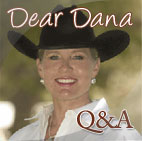Let’s ride this out!
Horse tips during COVID-19 concerns

The outside of a horse is good for the inside of a horseperson.
So, how do we spend the period (weeks?, months?) between now and the end of the COVID-19 viral scare?
From top to bottom, the COVID-19 crisis has affected all aspects of our local horse communities. Someday — hopefully later this spring — the gauntlet of rules and quarantines will pass, allowing us to return to our untethered equestrian lives. Those who are fortunate enough to be healthy but who may have a hiatus from work, school or other obligations because of lay-offs and closures — your horse is there.
California is a big state with a variety of restrictions, so please check with local government constraints during the quarantine. For example, seven counties in Northern California have “shelter in place” orders from the State. Other counties have no reports of confirmed cases.
Having said that, here are some tips for equestrians:
Gatherings
Bans on all gatherings of more than 10 people remain in effect. This means that any event larger than 10 people (e.g. horse shows, clinics, larger trail rides, conferences, etc.) are against federal recommendations, and in some areas, local laws.
Equine Related Injuries – ERs and Hospitals
During this time, exercise extreme caution in your own equine activities. Think twice about doing anything that might increase your risk of injury. The state continues to face shortages in the medical community, including reduced inpatient beds, availability of doctors, and sterile medical environments free of possible COVID-19 contamination. Trips to the ER increase your risk of contracting disease, and you may also be taking up medical resources that are needed by very sick people.
Social Distancing for Stables – Best Practices
The CDC and WHO also suggest the practice of social distancing. This should apply to all activities including equestrian activities at your farms, barns, and other agricultural buildings. Please ensure:
- A minimum space barrier of 6 feet between yourself and other people at all times. (e.g. no giving leg ups, no riding side by side, etc.)
- No more than 10 people in an area or present at an activity at one time.
- Sanitization of all common surfaces, supplies, and other items.
IMPORTANT NOTE: A person CAN contract COVID-19 by touching a surface or object that has the virus on it. The virus can survive from several hours up to a week on surfaces, depending on the type of surface, and the temperature and humidity. https://www.prevention.com/health/a31405079/how-long-does-coronavirus-live-on-surfaces/
These objects found in and around your farms include but are not limited to:
- Tack and Apparel: Bridles, Saddles, Girths, Saddle Pads, Wraps, Helmets, Boots, and all other Leather and Cloth items.
- Communal Barn Supplies: Pitch forks, Wheelbarrows, Hoses, Grooming equipment, etc.
- Rest room, tack room, feed room door knobs, light switches, etc.
We strongly advise you consider this when making decisions to continue your lesson programs and invite individuals including boarders to your facilities. You can find a list of disinfectant products that are effective in killing the COVID-19 virus here: https://www.epa.gov/pesticide-registration/list-n-disinfectants-use-against-sars-cov-2
Business Insurance – Loss of Income Clauses
If you own a business and are or expect to suffer a significant loss of revenue, we encourage you to check your business insurance policy for loss of income clauses and any recourse during a declared national or state of emergency.
Horse Care & Welfare – Available Resources
Finally, all members of California’s wide equestrian community should be thinking about how we can be prepared to help our fellow equestrians and their horses as the economic impact of the pandemic widens and is felt locally. If owners can no longer afford to care for their horses, contact association leadership and horse rescue operators for suggestions and options — before horses become abandoned or go without hay or feed.
If you have helpful information or news to share, please send to news@horsetrader.com so we can post it on our online newspage and also on our Facebook and Instagram pages.
San Marcos equestrians host Feb. 26 `Focus on Fire’ panel
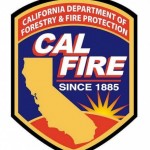 SAN MARCOS — Horse owners are encouraged to attend a Feb. 26 community forum at Walnut Grove Heritage Park for a presentation of lessons learned, preparedness and effective reaction strategies in event of a fire emergency.
SAN MARCOS — Horse owners are encouraged to attend a Feb. 26 community forum at Walnut Grove Heritage Park for a presentation of lessons learned, preparedness and effective reaction strategies in event of a fire emergency.
The Twin Oaks Valley Equestrian Association and Horse Heritage Conservancy will host the meeting from 6 to 8 p.m. in Mary Connors Hall, 1952 Sycamore Drive, San Marcos, CA 92069.
Positive dialogue is expected between the public and community leaders including Laura Ward, Deputy Director of the County of San Diego Animal Services; Tonia Haynes, Sergeant of Community Relations, Animal Rescue Services; Buck Martin, City of San Marcos Parks and Recreation Director; as well as representatives of the San Diego County Sheriff’s Department and Cal Fire.
For additional information, contact TOVEA at twinoaksvalleyequestrian@gmail.com.
If you have news or important community service items that you would like distributed by California Horsetrader magazine or horsetrader.com, send items to: news@horsetrader.com
Exposure to smoke affects horses
UC Davis vets offer tips to post-fire horse care
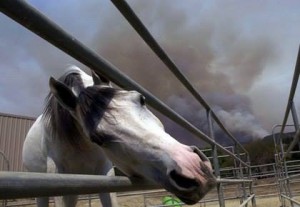 The severe fires throughout California over the past three months have exposed humans and animals to unhealthy air containing wildfire smoke and particulates. These particulates can build up in the respiratory system, causing a number of health problems including burning eyes, runny noses and illnesses such as bronchitis. They can also aggravate heart and lung diseases such as congestive heart failure, chronic obstructive pulmonary disease, emphysema and asthma.
The severe fires throughout California over the past three months have exposed humans and animals to unhealthy air containing wildfire smoke and particulates. These particulates can build up in the respiratory system, causing a number of health problems including burning eyes, runny noses and illnesses such as bronchitis. They can also aggravate heart and lung diseases such as congestive heart failure, chronic obstructive pulmonary disease, emphysema and asthma.
Three more L.A. horses test positive for EHV-1
Link to Oct. 27-29 Las Vegas horse show continues
BURBANK — State officials last night confirmed that three additional horses in L.A. County have been confirmed positive for the non-neuropathogenic strain of Equine Herpesvirus-1, all of them boarded in the same barn at Los Angeles Equestrian Center.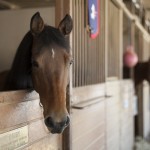
Two of yesterday’s three confirmed cases were at the same Oct. 27-29 horse show in Las Vegas that two previously confirmed horses had attended, according to reports from the California State Department of Food and Agriculture. One of those two previous cases, a 5-year-old Saddlebred, was euthanized Thursday.
All five horses resided in Barn A at the L.A. Equestrian Center, which acted quickly with biosecurity measures upon early cases to isolate any virus.
All three of yesterday’s confirmed cases are in isolation. Two of the three affected horses display neurologic signs, and the third horse has a fever.
Saddlebred dies of EHV-1 in L.A. County
Returned Oct. 30 from Las Vegas horse show
BURBANK — State officials confirmed Nov. 4 that two ill horses at the Los Angeles Equestrian Center have tested positive for equine herpesvirus-1 (EHV-1) after they had returned Oct. 30 from a horse show in Las Vegas, Nev.
One of the horses, a 5-year-old Saddlebred, was euthanized Nov. 3 because of the severity of its clinical signs, the California Department of Food and Agriculture reported.
was euthanized Nov. 3 because of the severity of its clinical signs, the California Department of Food and Agriculture reported.
Out of an abundance of caution, the CDFA has issued a quarantine for exposed horses at the facility and has implemented enhanced biosecurity measures. All exposed horses will have temperatures taken twice daily and will be observed for clinical signs compatible with EHV.
While the CDFA investigates the source of the virus and monitors for any potential spread, officials and L.A. Equestrian Center staff encourage owners of horses exposed to the area to follow basic protocols in the days ahead:
UC Davis: The shows CAN go on – carefully
Virus-scare clampdown is eased after study of California cases;
show managers receive guidelines to minimize risk to horses
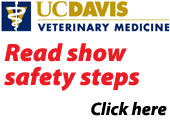 SACRAMENTO – After determining the virus that caused the death of one horse in California and the quarantine of 17 others is closely related to a single Utah horse show, the University of California Davis has informed horse show and event managers that the shows can go on – albeit carefully.
SACRAMENTO – After determining the virus that caused the death of one horse in California and the quarantine of 17 others is closely related to a single Utah horse show, the University of California Davis has informed horse show and event managers that the shows can go on – albeit carefully.
The UC Davis Veterinary Medical Teaching Hospital informed horse show and event managers Tuesday it has concluded the EHV-1 outbreak is centered around horses that were present at the National Cutting Horse Association’s Western National Championships held at the Golden Spike Event Center in Ogden Utah, from April 30 to May 8 or the Kern County Cutting Event in Bakersfield on May 13. This includes


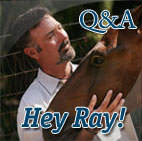
 Read Columns
Read Columns
